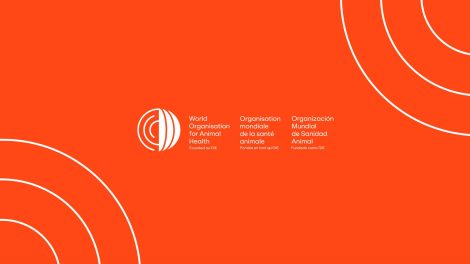
The monkeypox virus was discovered in Denmark (1958) in monkeys kept for research and the first reported human case of mpox was a nine-month-old boy in the Democratic Republic of the Congo (DRC, 1970. The natural reservoir of the virus is unknown.
The disease mpox (formerly monkeypox) is caused by the monkeypox virus (commonly abbreviated as MPXV), a double-stranded DNA virus of the Orthopoxvirus genus in the Poxviridae family, which includes variola, cowpox, vaccinia and other viruses. The two genetic clades of the virus are clades I and II.
Mpox is a zoonosis, a disease that is transmitted from animals to humans, with cases often found close to tropical rainforests where there are animals that carry the virus. Evidence of monkeypox virus infection has been found in animals including small mammals such as squirrels, Gambian pouched rats, dormice, different species of monkeys and others. Mpox can be human-to-human transmitted through physical contact, with contaminated materials, or with infected animals.
Mpox can cause a skin rash or mucosal lesions accompanied by fever, headache, muscle aches, back pain, low energy, and swollen lymph nodes. Laboratory confirmation of mpox is done by testing skin lesion material by PCR. The disease can be prevented by avoiding physical contact with someone who has mpox. Vaccination can help prevent infection for people at risk.
Following eradication of smallpox in 1980 and the end of smallpox vaccination worldwide, mpox steadily emerged in central, east and west Africa. A global outbreak occurred in 2022–2023. The recent detection and rapid spread of a new clade of mpox in eastern DRC, its detection in neighbouring countries that had not previously reported mpox, and the potential for further spread within Africa and beyond is very worrying according to the WHO.
In August 14th 2024, WHO Director-General has determined that the upsurge of mpox in the Democratic Republic of the Congo (DRC) and a growing number of countries in Africa constitutes a public health emergency of international concern (PHEIC) under the International Health Regulations (2005) (IHR). (WHO Director-General’s opening remarks at the media briefing following the IHR Emergency Committee meeting on the upsurge of mpox 2024 – 14 August 2024)
The day after the WHO DG’s declaration, Sweden reported the first case on its territory in Stockholm. This is the first case in Europe of the mpox variant of subtype clade 1b, which has been re-emerging in the Democratic Republic of Congo (DRC) since September 2023.
WOAH encourages its members to report the disease and is working with its experts and partners, such as WHO, to gather the latest scientific information and reports from the field. WOAH collates this information and shares it transparently with its members and the public, aiming to help decision makers to make risk-based decisions considering the latest scientific evidence. MPox – WOAH – World Organisation for Animal Health ; (1) World Organisation for Animal Health : posts | LinkedIn

